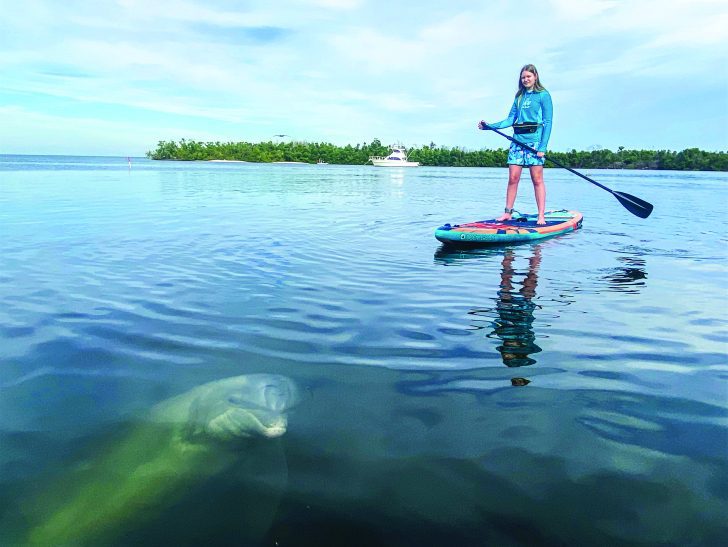By: Mike Hammond

During a recent marine task force meeting, a representative from the Florida Marine Mammal Rescue Team shared some helpful information that we’d like to pass on to boaters and paddlers to better protect marine mammals.
If you want to help, save the FWC Wildlife Alert toll-free number in your phone now: 1-888-404-FWCC (3922). The first and most important thing you can do is call and report the situation. The representative explained that, although well-intentioned, people often make things worse by trying to help on their own.
For example, dolphins will sometimes “strand” themselves intentionally. Pulling them back into deep water can result in drowning or dislocated pectoral fins from being dragged over sand.
Manatees occasionally become entangled in crab trap lines. While your instinct might be to cut the lines quickly, this is not what’s best for the manatee. As long as the animal can surface for air, there’s time for the rescue team to arrive with their specialized tools and expertise. Cutting the line makes the manatee harder to locate and rescue. Additionally, pulling on the line can cut into its skin and even cause partial amputation.
The representative explained that if the manatee remains attached to the trap float, her team can find it quickly, capture it safely, and remove the line without causing harm. They also assess whether further care is needed.
After you report the situation, you may be asked to keep an eye on the animal until help arrives or assist in another way. Anyone who rescues wildlife will tell you that every rescue is different. Our ability to paddle into areas that other people cannot reach may create some unique circumstances.
Whatever the circumstances are, please call the experts first. It is what is best for the animal’s wellbeing and your own safety.
For more information on exploring or protecting wildlife along the Calusa Blueway, visit www.calusablueway.com or contact us at blueway@leegov.com.
